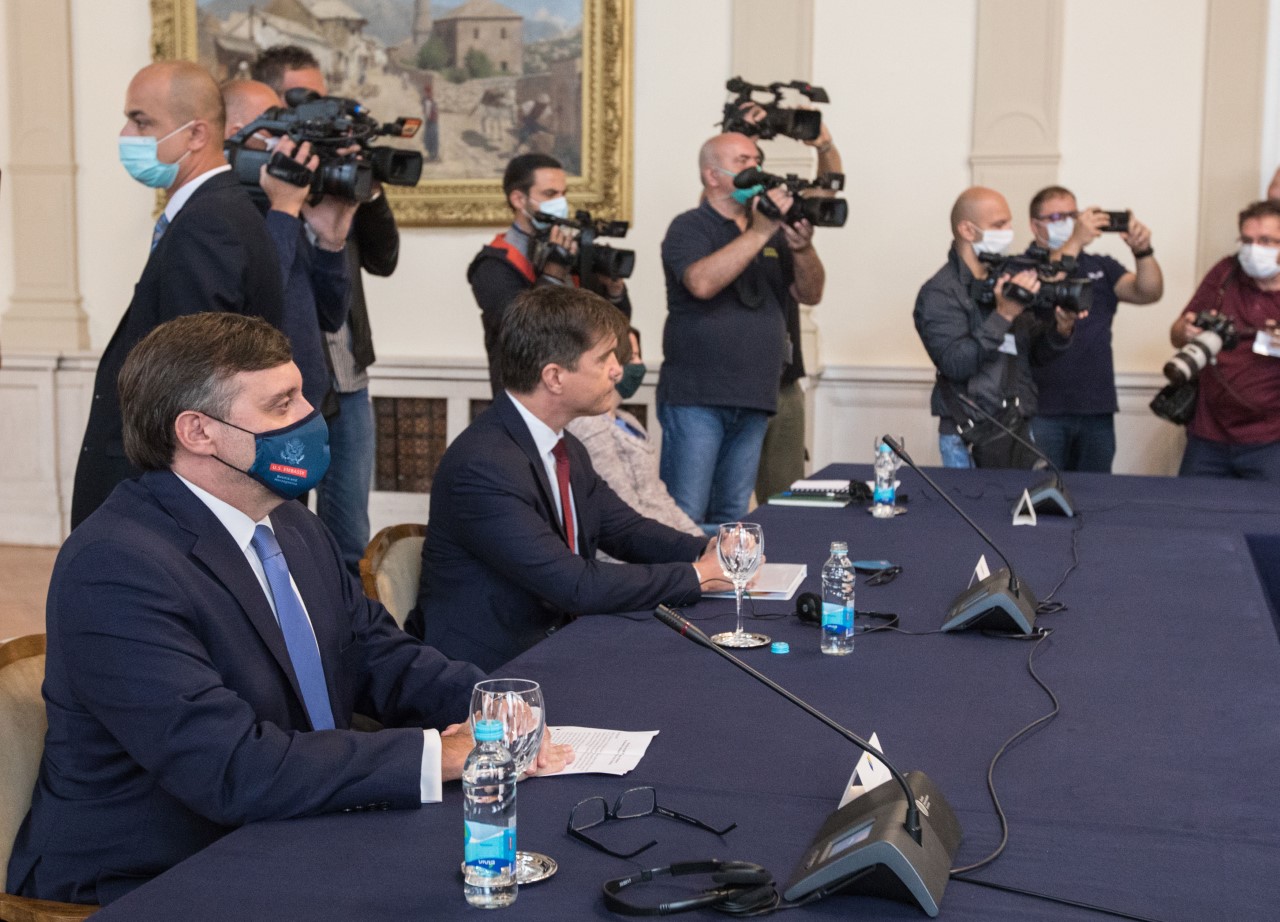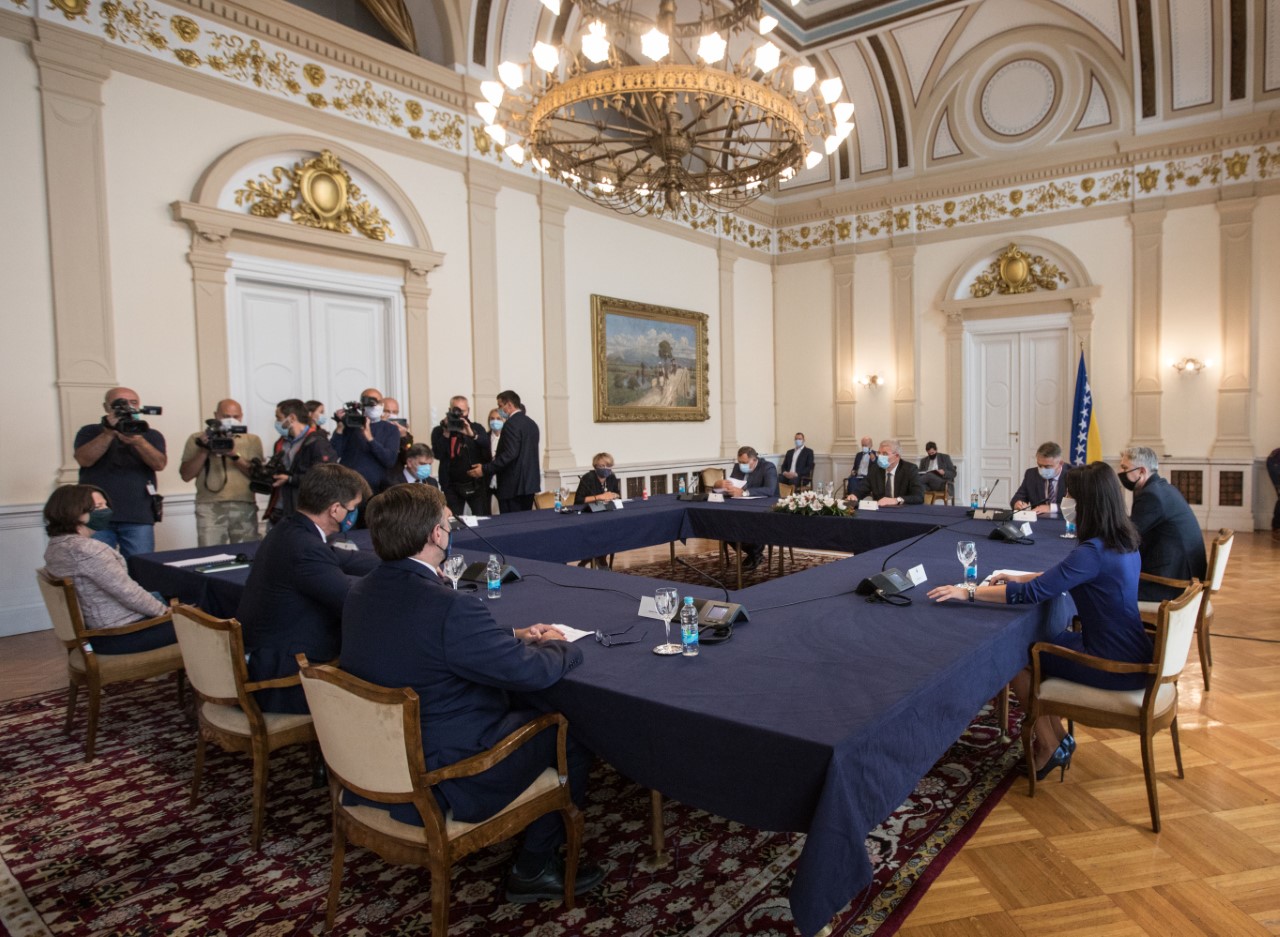
Bosnia's tripartite Presidency met on Wednesday with the US Deputy Assistant Secretary and Special Representative for the Western Balkans Matthew Palmer with whom they talked about the current political and economic situation in the country, the 25th anniversary since the signing of the Dayton Peace Agreement.
"This historic event has played a key role in establishing peace and stability in Bosnia and Herzegovina. The members of the tripartite Presidency thanked Palmer for the assistance and partnership role of the United States in implementing key reforms. They reiterated their commitment to solving the issues crucial for the country's prosperity on which the Presidency is focused," said the statement from the Presidency.
Palmer reiterated US active support for Bosnia in implementing the necessary reforms, strengthening democracy and the rule of law.
"Bosnian Presidency's commitment is to continue the cooperation in the implementation of the package of socio-economic reforms, fight against corruption and fight against human trafficking," the statement said.

Following the signing of the Dayton Peace Agreement which ended the 1992-1995 war in Bosnia, the country has been subdivided into two semi-autonomous entities and a district, leaving the central government weak and dependent on the will of entity political leaders. Each of the two entities, the Bosniak-Croat shared Federation (FBiH) and the Serb-dominated Republika Srpska (RS) has it's own government, parliament and enjoys a high level of autonomy, as does the Brcko District, not dominated by either of the three constituent peoples.
The Presidency consists of representatives of the said three peoples (incumbent Bosniak Sefik Dzaferovic, Serb Milorad Dodik and Croat Zeljko Komsic) and it is the one in charge of Bosnia's foreign policy.
Bosnia's Presidency noted that there is an absolute consensus in the country when it comes to its EU accession, and the US official welcomed the progress made on its EU path under the leadership of the current Presidency.
"Interlocutors especially focused on the global consequences of the Covid-19 pandemic. The negative impact of the pandemic on economic stability and prosperity of Bosnia, as well as the modalities for recovery and reconstruction of key segments of the economy, were also discussed," the statement said.
Kakvo je tvoje mišljenje o ovome?
Učestvuj u diskusiji ili pročitaj komentare





 Srbija
Srbija
 Hrvatska
Hrvatska
 Slovenija
Slovenija







